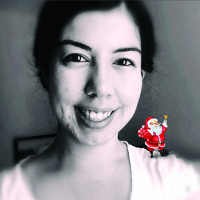
BY MELEK CANSU PETEK (ELIT/II)
petek@ug.bilkent.edu.tr
Last week, I came across a beautiful word while reading a book—sehnsucht. The word itself is German and means “yearning intensely”—no, I don’t know German, though I’m making attempts to learn it now and then. This one word brought so many thoughts to my mind, and I asked myself—what do I long for intensely? At one level, in the broadest sense, we all long for beauty, but where we find it differs for each individual. I find beauty in words.
Words matter. It doesn’t matter whether you’re writing, speaking, or simply—or perhaps not so simply—thinking. Words do matter. Not only do they have the power to alter how you think and feel; words also shape every single relationship you have. They are the invisible wires that connect us one to another. Carefully worded thoughts can strengthen these wires, whereas the ones you recklessly throw out at people, or even at yourself, can cut them altogether.
How amazing it is that as I put these words on paper, they are no longer mine alone. As you read them, perhaps the surface meaning will be the same for you and me, but the way it will echo in your mind and heart may be completely different, as if we don’t comprehend the same words anymore. You’ll think about them through your own experiences, through who you are. That alone is enough to make me run after these magical entities made of letters.
Now, how did I come to think about words? The starting point of all these thoughts was seeing the “untranslatable words” posts on the Internet. All those words are unbelievably gorgeous, and it’s true that there may not be words with those exact meanings in every language, but does that really mean they’re untranslatable? It probably depends on how you perceive the word “translation.”
I always think that each individual has their very own language and understanding of it. Our backgrounds, reading habits, thinking patterns and personalities all shape the way we use and understand the words in a language. Translating a text, then, is not merely finding the equivalents of the words and putting them in the right order. It’s creating a new text, in a sense, based on what the source text ignites in you, by choosing from a range of words that have similar meanings—but no, it’s not that simple! You want to choose a particular one because that’s what you’re looking for, and you can’t settle down until you have that eureka moment.
If, then, translating means a lot more than looking up the words in a dictionary, if you see it as another level of creation, is it truly possible to talk about untranslatability? Aren’t words, after all, the reflections of people, habits, culture? Culture is not a static notion; it evolves in time, and that process may bring forth a new means of expression, be it a single word or a whole poem. All those seemingly “untranslatable” words are the consequences of the evolution of languages and people’s need to use a specific word for a specific notion.
Take the word “komorebi” from Japanese, for instance. It means “sunlight that filters through the leaves of trees.” In English and Turkish, speakers may choose to portray the scene in other ways—by using colorful depiction, and even writing a poem or pages of prose about it—but in Japanese a single word suffices for the same purpose.
While I was looking for more of these words, I saw many blogs giving the example of a Georgian word—zeg—which basically means “the day after tomorrow,” and bloggers were complaining that English doesn’t have a word for that. I admit that it would be useful to have such a word, but perhaps it would be obsolete by now. I don’t hear many people using “fortnight” anymore, although it sounds more poetic than “two weeks.”
Perhaps, after all, it is a choice to leave these words untranslated. Each one of them is an anthem that celebrates the uniqueness of us, our culture—our reflection in the mirror of a word. Yes, languages and cultures seem to be changing faster and somewhat more heartlessly these days, but there is no use in constantly complaining about that by using destructive words. What I’m attempting to do about that is to combine my “sehnsucht” for beauty in words with what the Japanese call “wabi-sabi”: a way of living that focuses on finding beauty within the imperfections of life and accepting peacefully the natural cycle of growth and decay. Now, isn’t that truly wonderful?
